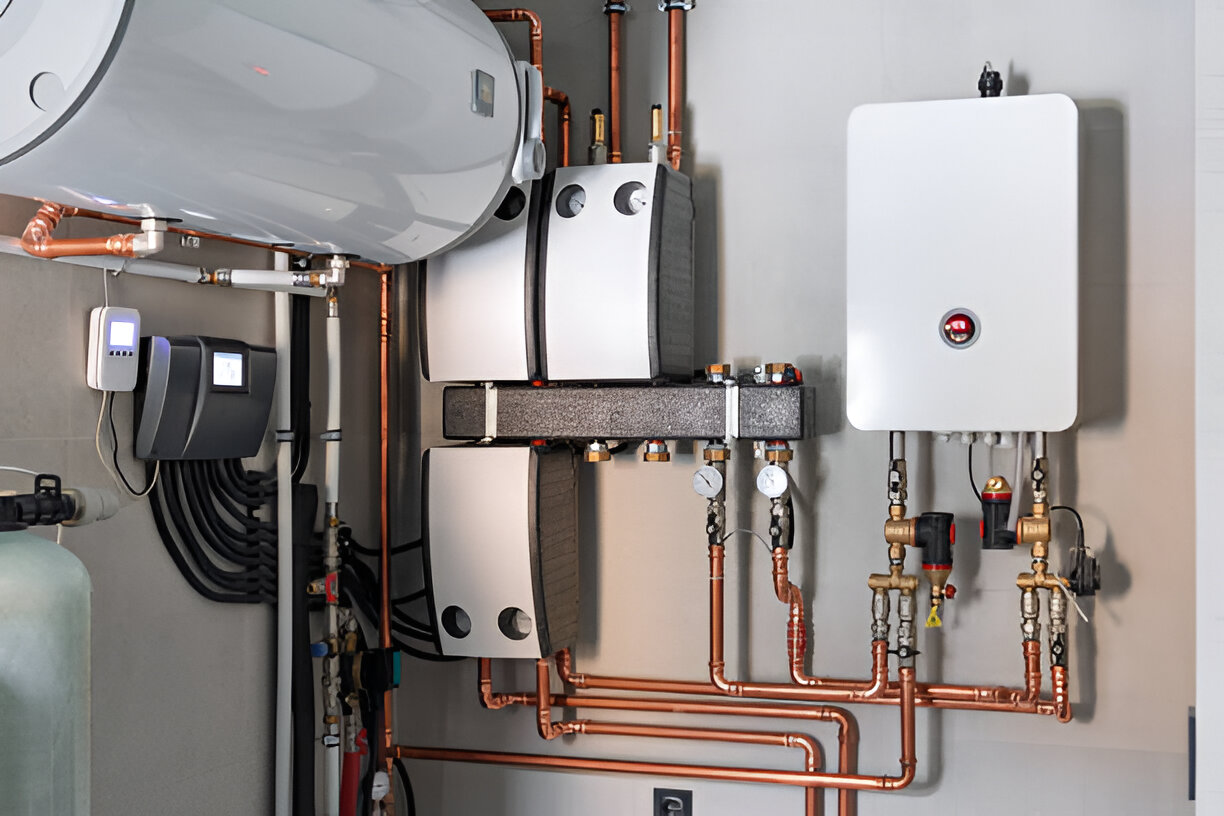
Heating Tune-Up in East Petersburg, PA
Keeping your heating system running safely and efficiently is essential for East Petersburg homes, where cold winters and early-season temperature swings increase heating demand. A professional heating tune-up for furnaces, boilers, and heat pumps addresses performance, safety, and reliability so your system starts every cold morning without surprise breakdowns or high energy bills.
What a heating tune-up covers (furnace, boiler, heat pump)
A complete heating tune-up is tailored to the equipment type. Typical focus areas include:
- Furnace tune-up in East Petersburg, PA
- Burner inspection and cleaning
- Ignition and pilot system checks
- Heat exchanger inspection for cracks or corrosion
- Combustion and carbon monoxide (CO) safety checks
- Blower motor inspection, lubrication, and belt condition
- Filter check and airflow measurement
- Thermostat calibration and start/stop testing
- Boiler tune-up in East Petersburg, PA
- Combustion efficiency and flue gas analysis
- Boiler pressure, expansion tank, and zone valve checks
- Heat exchanger and piping inspection for leaks or corrosion
- Low-water cutoffs and safety control testing
- Purging and flushing recommendations for scale or sediment
- Venting and chimney condition assessment
- Heat pump tune-up in East Petersburg, PA
- Refrigerant level check and system charge verification
- Reversing valve and defrost cycle testing
- Outdoor coil and fan cleaning
- Electrical and compressor performance checks
- Air handler and reversing valve lubrication/inspection
- Seasonal performance and thermostat calibration
Common heating tune-up issues in East Petersburg, PA
Many of the problems homeowners face during tune-up season are predictable, especially in East Petersburg where older homes and rapid outdoor temperature changes are common:
- Reduced airflow from clogged filters or restricted ducts
- Dirty burners or coils causing inefficient combustion or heating
- Failing ignition components or intermittent pilot lights
- Worn blower motors or belts producing noise and poor circulation
- Low refrigerant or a stuck reversing valve on heat pumps
- Scale, sediment, or corrosion in older boilers reducing heat transfer
- Venting or chimney issues that risk backdrafting or CO buildup
- Thermostat drift or poor zoning control leading to uneven warmth
Addressing these during a tune-up prevents inconvenient failures during cold snaps and reduces energy waste.
Diagnostic and tune-up process
Technicians follow a consistent, safety-first process to diagnose and restore optimal performance:
- Visual inspection - check cabinet, vents, flues, condensate lines, and exterior unit condition.
- Safety checks - carbon monoxide testing, ignition and safety control verification, and proper venting/combustion air.
- Cleaning tasks - remove dust and debris from burners, heat exchangers, coils, and pans to restore heat transfer.
- System adjustments - calibrate gas pressure or combustion, set correct refrigerant charge on heat pumps, and adjust airflow for balanced distribution.
- Performance testing - measure temperature rise, static pressure, flue gas composition (where applicable), and system cycling under load.
- Report and recommended corrections - technicians document findings, explain necessary repairs or part replacements, and outline expected benefits and priorities.
This method ensures safety hazards are addressed first, followed by efficiency and reliability improvements.
Typical corrective actions and expected benefits
Common corrections identified during tune-ups often include filter replacement, burner cleaning, blower motor servicing, sealing duct leaks, replacing worn belts, flushing boiler lines, or tightening electrical connections. For heat pumps, correcting refrigerant charge and cleaning outdoor coils deliver immediate gains.
Benefits you can expect after a professional tune-up:
- Improved energy efficiency and lower utility costs
- More consistent indoor temperatures and faster recovery after setbacks
- Quieter, smoother operation with fewer short cycles
- Reduced risk of mid-winter breakdowns and emergency repairs
- Enhanced safety through CO monitoring and functional safety controls
- Longer equipment life with fewer premature component failures
Expected visit duration
Time on site depends on system type and condition. Typical durations:
- Furnaces: about 45–75 minutes for a standard tune-up
- Boilers: about 60–120 minutes, depending on size and whether flushing or additional diagnostics are needed
- Heat pumps: about 60–90 minutes for a full seasonal check (longer if refrigerant work is required)
If the technician finds significant issues or parts need replacement, additional time may be required to complete repairs or schedule follow-up service.
Seasonal timing recommendations for East Petersburg homeowners
Timing a tune-up correctly in East Petersburg helps avoid the worst of winter demand:
- Furnace and boiler: schedule in late September through October, before sustained cold weather and holiday guests increase heating use.
- Heat pump: inspect in both fall and spring for best year-round performance—fall ensures heating readiness; spring verifies cooling transition and checks for compressor stress from the past season.
- Older systems or properties with prior issues: consider biannual checks to catch wear early, especially if your home has aging boiler components or sealed, low-ventilation construction.
Local weather patterns in Lancaster County can bring cold snaps earlier in the season; scheduling ahead of the first sustained drop in temperature reduces the chance of waiting for repair services during peak demand.
Maintenance expectations after the tune-up
After a tune-up, expect a short equipment run-in period as the system settles. You should notice steadier temperatures, quieter operation, and fewer short cycles. Keep an eye on filter condition and indoor airflow, and retain any documentation the technician provides—those notes are useful for tracking recurring issues and planning future service intervals.
Regular heating tune-ups are an investment in safety, efficiency, and comfort for East Petersburg homes. Properly maintained furnaces, boilers, and heat pumps perform better, last longer, and help protect your household from winter heating problems.


Enjoy flexible financing options that make upgrading or repairing your HVAC system easy and budget-friendly.










